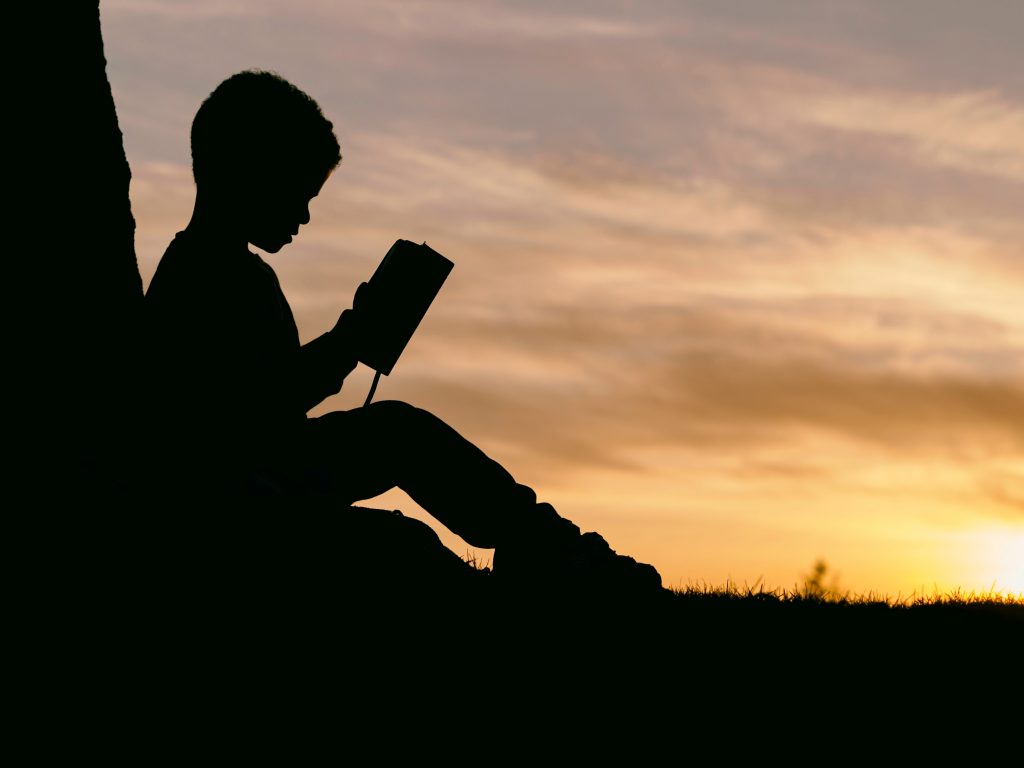
I recently got one of those terrifying, heart-sinking phone calls – a call that my 13-year-old daughter was in the back of an ambulance on her way to the Emergency Room.
When I got to the ER, they led me to the room where she was. She had a neck brace on and couldn’t turn her head so I went up to her and put my face right over hers so she could see me. She was on some pretty strong pain killers by then and doesn’t actually remember this moment but the first thing she said to me is seared into my memory. She said, “mom, tell me a story”. I immediately made up a story on the spot about a girl and her puppy. In that moment, my daughter needed something familiar, comforting and distracting (I couldn’t help but think of all the stories I have read to her over the years). And that is one of the amazing powers that stories can provide- distraction when the pain is too big to handle.
Stories have the power to free you from your reality, but they also have the power to trap you.
Over the past few weeks, I have been thinking about my daughters request for a story; and the power and significance that stories hold.
Stories not only work as a much needed distraction, but stories help us learn.
Stories help us teach our kids about the world. Sometimes it is easier to process difficult themes and big events when it is happening to a character in a book rather than to you directly.
Stories also help us learn about ourselves.
How we tell our own story has a great impact on our perception of the world and our place in it. How we relate to these stories makes all the difference. The stories we construct about ourselves can become problematic when we get too attached to them. If we get too attached to any particular story, we can get stuck in place and miss an opportunity that’s right in front of us.
Sometimes we might get stuck on that familiar story that begins with, “I just can’t ____.” This story goes on to list all of our short-comings and reasons why we shouldn’t even try. This story can be paralyzing if we believe it. But when we step back and realize it’s just another story, we can let it be just that – a story. It can be very freeing to realize that you don’t have to believe every story – not every story is set in stone.

There are other common stories we may get attached to such as the “bad parent” story. This self-critical story emphasizes all our failures and mistakes as a parent.
Or the “what if _______ (worst case scenario)” story. It’s amazing how creative this story can get when we let it run wild.
Everyone experiences these mental stories but the influence they have relies on how we relate to them.
Holding on too tightly to any particular version of your story can be problematic. The stories about ourselves are best viewed as works in progress – always being edited, revised and re-written. We are complex, evolving creatures that change with each new experience.
When faced with challenges and uncertainty, it is so important to notice the stories you start to become attached to. Relating to these stories in a flexible way will help you respond more effectively (i.e., psychological flexibility). If you get stuck on a particular story it will be more difficult to remain in the present moment. Practicing mindful awareness helps you notice when you are starting to get hooked and how to come back to the present.

I wish I could say I practiced this perfectly when my daughter was hurt but I didn’t; I needed to continually remind myself to notice the stories I was getting stuck in. It gave me an opportunity to practice what I preach. Practicing mindfulness and calming strategies becomes so obviously important when you are in pain or watching someone you love in pain. Watching your child suffer is one of the worst things to experience. Those two days in the hospital with my daughter, after her fall, were incredibly hard. But I was amazed by her resilience. I witnessed her learning how to cope and manage excruciating pain – and she didn’t give up. She is already talking about getting back on the climbing wall once she is fully recovered (she fell while bouldering at the climbing gym).
I will continue telling my daughter stories to distract her when needed and teach her about the world. But most importantly, I will teach her how to tell her own story; one which is filled with her ongoing strength, courage and resilience even after she falls.
*written and shared with the permission of my daughter
